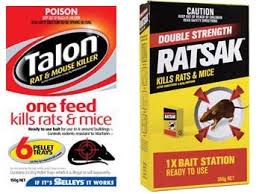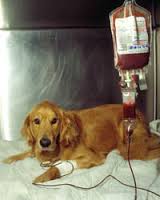 With winter here, temperatures are dropping and this often causes mice and rats to head indoors in search of food. If you are unlucky it will be your house they decide to call home. Most of us tackle this problem by setting traps and putting out rat baits as no-one wants to share their home with these rodents. Unfortunately if the appropriate precautions are not taken your pet could be the one who ends up taking the bait, resulting in their possible death.
With winter here, temperatures are dropping and this often causes mice and rats to head indoors in search of food. If you are unlucky it will be your house they decide to call home. Most of us tackle this problem by setting traps and putting out rat baits as no-one wants to share their home with these rodents. Unfortunately if the appropriate precautions are not taken your pet could be the one who ends up taking the bait, resulting in their possible death.
It is extremely important to take care when placing the baits by securing them well, checking them regularly and putting them in a place where they are not accessible to your pet.
If you suspect your pet may have eaten rat bait it is imperative you contact your vet as soon as possible, even though there may be no immediate signs of them being ill. The poison can take two to three days (sometimes even longer) to start producing noticeable symptoms, and unfortunately by this time it can be too late.
The most common symptoms include pale gums and eyes, weakness and lethargy and losing their appetite. These symptoms occur because the baits cause slow but massive internal bleeding. If your pet has reached this stage of poisoning, treatment often requires blood or canine plasma transfusion and intensive care. However, the prognosis if you bring your pet in at the early stages of them ingesting a bait is excellent.

It is important if you suspect your pet has ingested a bait to let the vet know the particular type and brand of bait. As careful as we always try to be, no-one is infallible and pets have a way of getting into places that you never suspect they could, so please don’t feel embarrassed or ashamed. Telling the vet the type of toxin your pet has ingested will enable him/her to give the best treatment possible.

